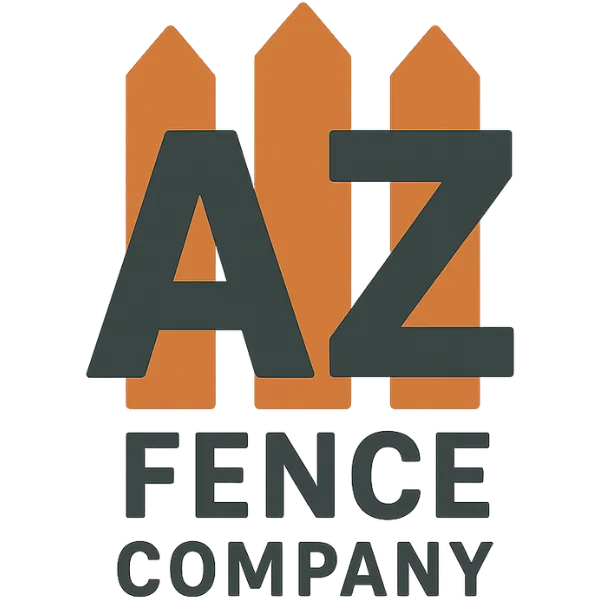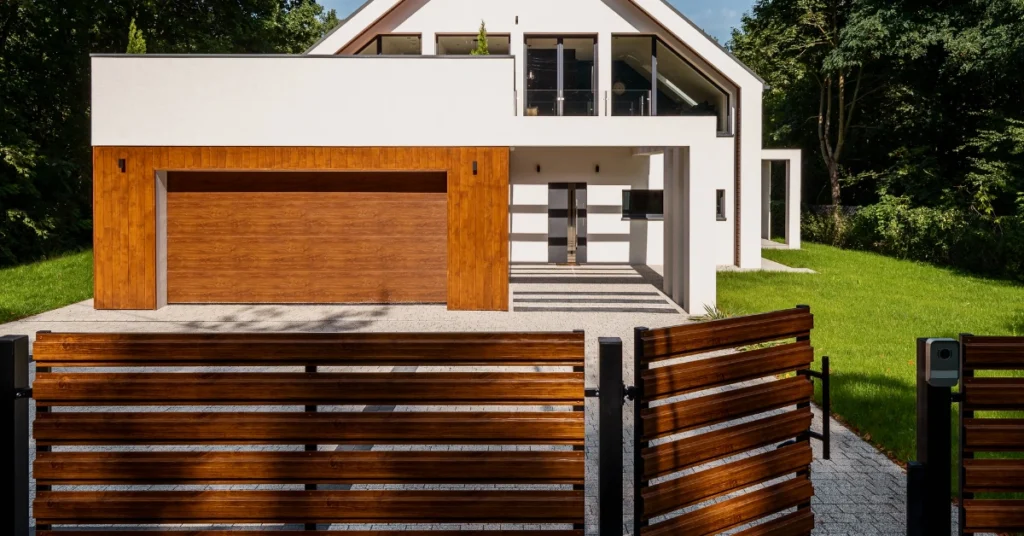Selecting the right fence material for Arizona homes requires understanding how different options perform under our extreme desert conditions. With temperatures regularly exceeding 110°F and intense UV exposure, not all traditional fencing materials will survive long-term. AZ Fencing specializes in identifying and installing the most durable, desert-appropriate materials that balance aesthetics with practicality for your specific property location.
Essential Insights: Best Fence Materials for Arizona’s Desert Climate
- Heat-resistant options – Vinyl with UV inhibitors, aluminum, and properly treated cedar outperform standard materials in extreme temperatures
- Monsoon-ready durability – Metal fencing provides superior wind resistance without creating sail effects during storm season
- Long-term value considerations – Initial investment in quality materials (vinyl, aluminum) typically outweighs maintenance costs of less expensive options
- Climate-specific installation requirements – Proper post depth, expansion allowances, and specialized hardware guarantee fence longevity in Arizona soils
- Material-specific maintenance needs – Each fence type requires different care routines to maximize lifespan in desert conditions
Top-Performing Fence Materials for Arizona Desert Conditions
Vinyl Fencing: The Low-Maintenance Champion
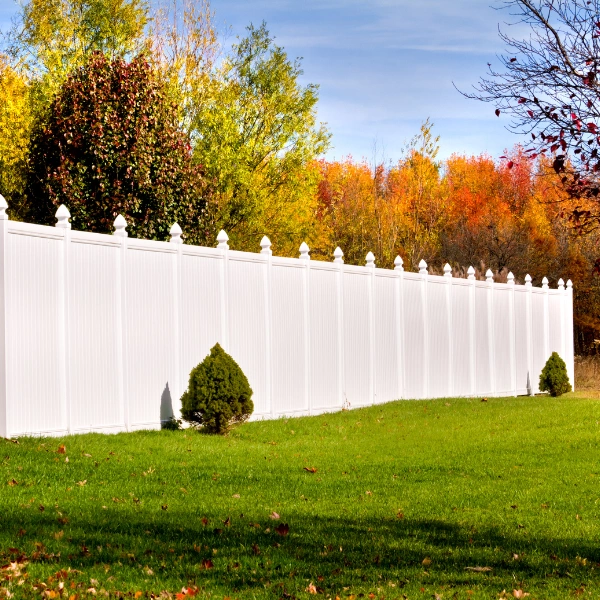
A popular fence material for warm climates is vinyl. Today’s vinyl fence material often contains titanium dioxide (TiO₂), which protects against UV ray degradation. Vinyl resists temperature changes, making it ideal for hot climates, as it won’t expand much on hot days or contract when temperatures drop. It’s also not a good heat conductor, so even on scorching days, a vinyl fence won’t feel hot to the touch—perfect for backyards where children play.
In our experience installing vinyl fences throughout Phoenix, we’ve found they offer:
- Superior color retention –Vinyl fencing comes in many colors and holds up well against the sun. Built-in UV protection helps it resist fading, keeping the fence vibrant with little upkeep, even in Arizona’s intense sunlight.
- Long-term value – While initial costs may be higher than some materials, vinyl’s minimal maintenance needs and longevity provide excellent return on investment.
- Versatile design options – From privacy panels to decorative styles like traditional picket fence designs, vinyl comes in numerous design variations.
Metal Fencing Options: Aluminum vs. Steel Performance
For Arizona homeowners seeking security with minimal maintenance, metal fence options offer compelling benefits.
Aluminum Fencing
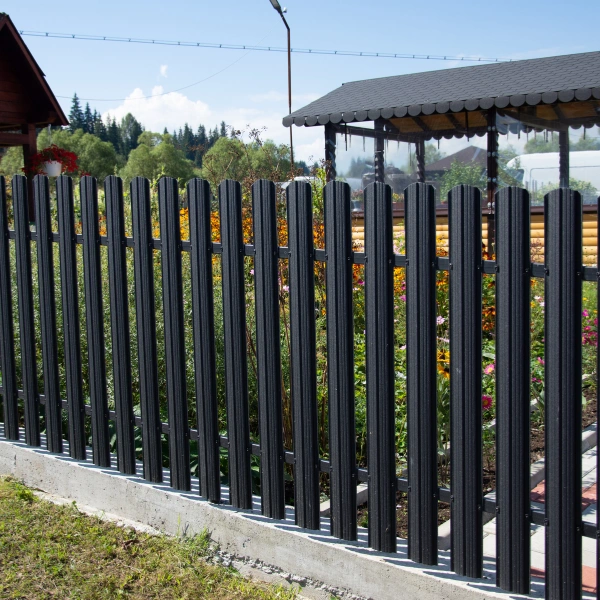
Aluminum possesses a high melting point and retains its structural integrity in extreme heat without warping, cracking, or sagging. One of its key advantages is color retention through powder coating, which creates a durable surface that resists UV radiation and prevents fading over time.
Key benefits of aluminum fencing for Arizona properties:
- Superior weather resistance against rain, hail, UV rays, corrosion, rust, decay, and insect infestation
- Works well on any terrain (flat or sloped) without creating unsightly gaps
- Non-combustible aluminum alloy 6063-T6 doesn’t burn or release smoke, providing better fire defense than wood or vinyl
Steel Fencing
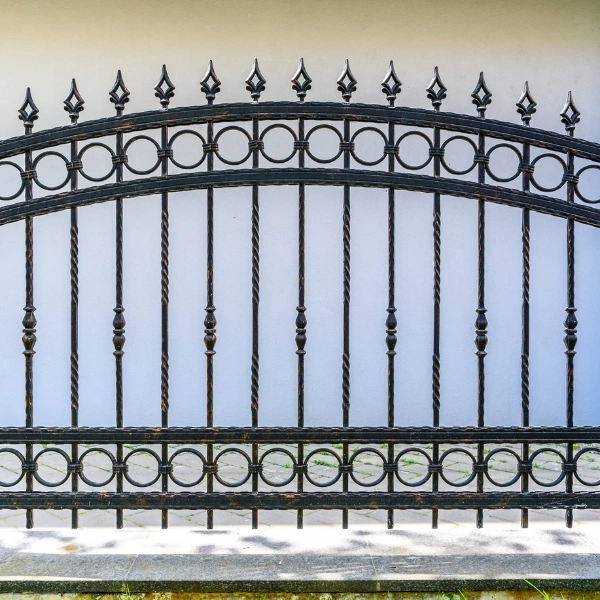
Steel fencing provides superior strength and security, making it ideal for high-security zones at commercial properties. Galvanized steel fences have a protective zinc layer to prevent rust in harsh weather conditions. While more expensive and requiring regular maintenance in Arizona’s climate, steel offers unmatched security and longevity when properly maintained.
Cedar Fences: Natural Beauty with Desert Adaptability
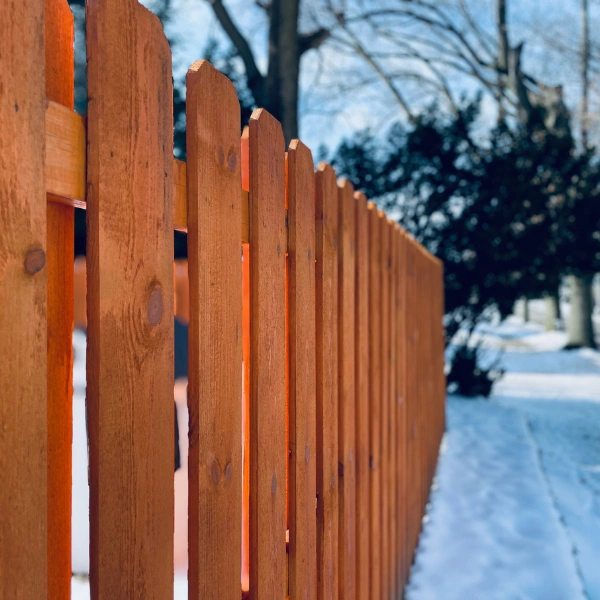
Cedar is one of the most popular choices for wooden fences due to its natural resistance to rot and insects. It contains oils that act as a natural deterrent against pests, making it a low-maintenance and long-lasting option. Both cedar and redwood are particularly well-suited to Arizona’s climate, outperforming other wood varieties like pine, which requires more frequent treatment in desert conditions.
When selecting cedar for Arizona fence installations, we recommend:
- Western Red Cedar with its natural oils and resins that resist rot, insects, and decay. Properly treated cedar fencing can last up to 40 years, compared to pine’s 10-15 year lifespan.
- Regular sealing and maintenance, especially for areas with direct sun exposure.
Chain-Link and Wire Fencing for Arizona Properties
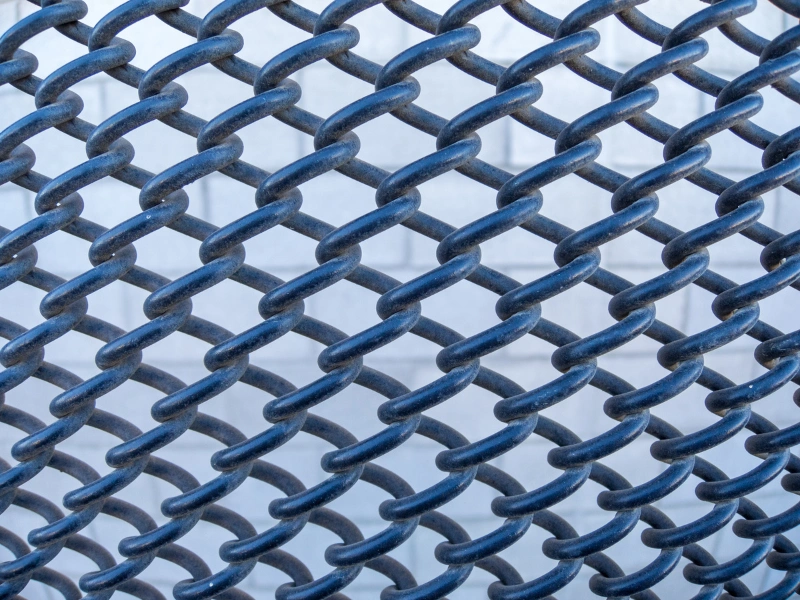
Chain-link is certainly an acceptable alternative material for homeowners looking for a weather-resistant fence. It doesn’t expand under the heat of the sun or contract when cooler weather arrives. The disadvantage is that chain-link can get hot after sitting in the sun all day.
Chain-link fences offer:
- A cost-effective perimeter security
- Steady airflow that doesn’t create wind resistance during monsoons
We recommend vinyl-coated chain-link for most Arizona applications to reduce heat absorption and extend the fence’s lifespan.
Composite and Alternative Fencing Materials
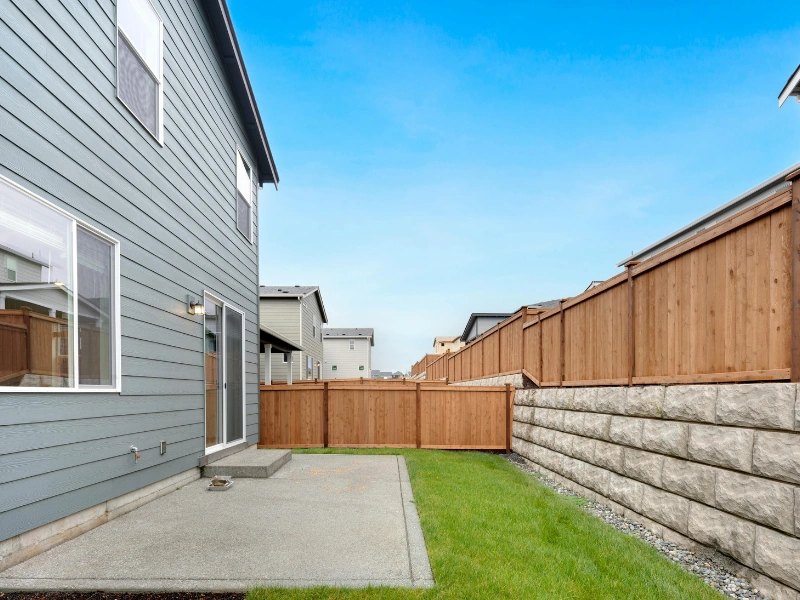
For homeowners seeking eco-friendly options that withstand Arizona’s climate, several innovative materials deserve consideration:
- Composite fencing, made from recycled plastic and wood fibers, resists warping and fading while mimicking wood’s appearance.
- Pallet fencing offers a budget-friendly DIY option that repurposes materials into a practical garden barrier.
- Vinyl fencing is durable, requires little maintenance, and can mimic the look of wood or stone. It is resistant to the Arizona sun and is available in various styles.
- Living fences, built from shrubs or hedges, create a natural green wall but need regular maintenance.
Choosing the Right Fence Style for Your Arizona Property
Privacy Fence Material Selection by Climate Zone
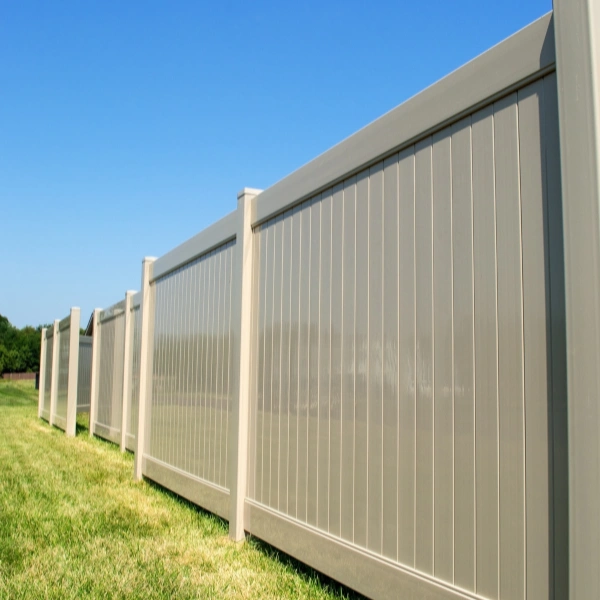
Privacy needs vary across Arizona’s diverse climate regions:
- Phoenix Valley: Go for tall vinyl privacy panels that reflect heat and maintain structural integrity.
- Higher Elevation Areas: Consider cedar with proper sealing to withstand seasonal weather variations.
- Exposed Desert Locations: Aluminum offers wind resistance without creating sail-like surfaces during monsoon seasons.
Driveway Gates and Entry Solutions for Different Materials
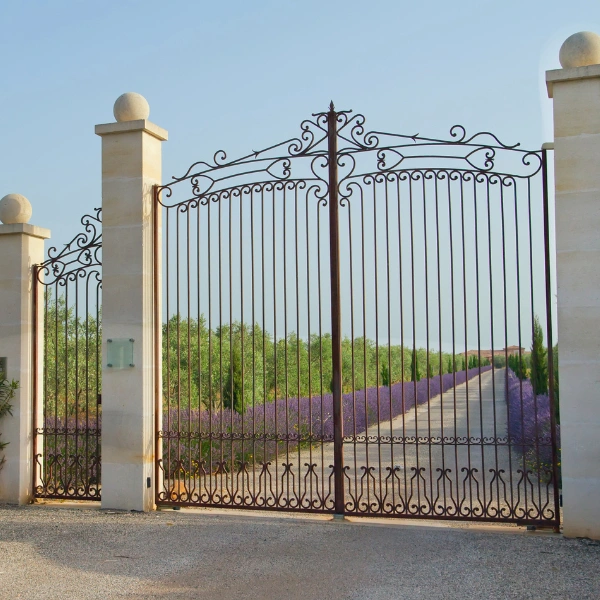
When selecting gates for your Arizona property, consider:
- Heat expansion allowances: Gates require proper spacing to accommodate thermal expansion.
- Automation components: Electronics should be housed in shaded or insulated boxes to prevent heat damage.
- Weight and stability: Heavy gates, particularly wrought iron gates, may require additional structural support in Arizona’s sandy soils.
Installation Considerations for Arizona’s Extreme Weather
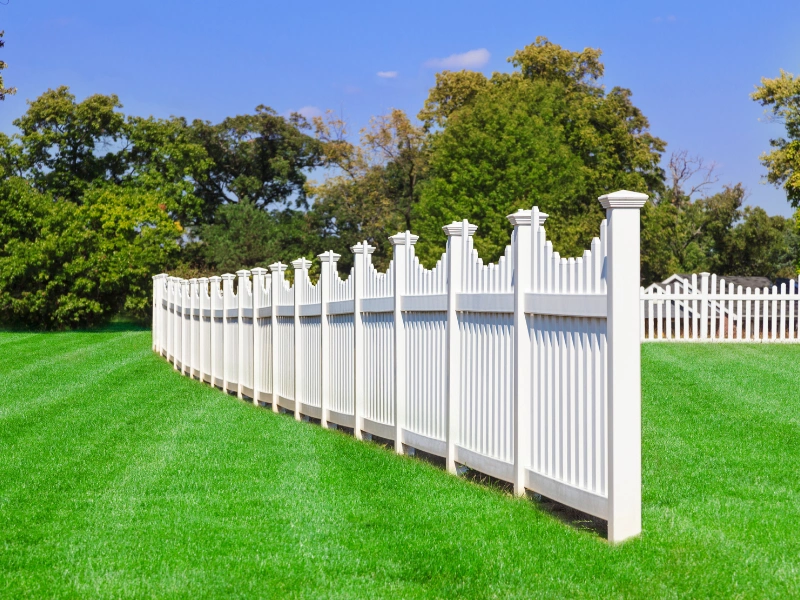
Proper installation is important for fence longevity in Arizona:
- Post depth: We install posts deeper than standard requirements to account for our soil conditions.
- Concrete setting time: Installation timing must account for extreme heat effects on concrete curing.
- Expansion gaps: Proper spacing between materials allows for thermal expansion without warping.
- Drainage provisions: Even in our desert, proper drainage prevents damage during monsoon downpours.
Maintenance Requirements by Material Type in Desert Climate
Each fencing material requires specific maintenance in Arizona’s climate:
- Vinyl: Annual washing to remove dust buildup; inspection for UV damage.
- Aluminum: Occasional rinsing; check for loose hardware due to thermal cycling.
- Cedar: Resealing every 1-2 years; inspection for dry rot and insect activity.
- Chain-Link: Check tension annually; inspect coating for deterioration.
Partner with Arizona’s Fencing Experts for Your Project
At AZ Fencing, we understand Arizona’s unique climate challenges and have developed installation techniques specifically for desert conditions. Our experienced team can help you select the perfect fencing material for your specific property location, budget, and aesthetic preferences.
- Phone: (480) 508-1998
- Request a Free Quote: Click here to get your personalized estimate
- Email: sales@theazfencecompany.com
Contact us today for a free consultation and discover why we’re Arizona’s trusted fencing professionals, with installations throughout Phoenix, Glendale, Scottsdale, Mesa, and beyond.
Frequently Asked Questions About Arizona Fence Materials
What is the best material for a fence in Arizona’s desert climate?
Aluminum offers superior durability against rust and corrosion, translating to significant savings for property owners. For most Arizona homeowners, we recommend aluminum or vinyl with UV inhibitors for the best combination of durability and low maintenance. Cedar is excellent for those preferring natural wood, provided it receives proper maintenance.
What fence material offers the best value in Arizona?
For minimal maintenance in Phoenix’s climate, vinyl and composite fencing materials outperform traditional wood fences. Both aluminum and iron fences provide excellent security while maintaining visibility and airflow, making them ideal for pool fencing or front yard applications where curb appeal is prioritized. Well-maintained cedar and high-quality vinyl privacy fencing also boost property values in Arizona neighborhoods.
